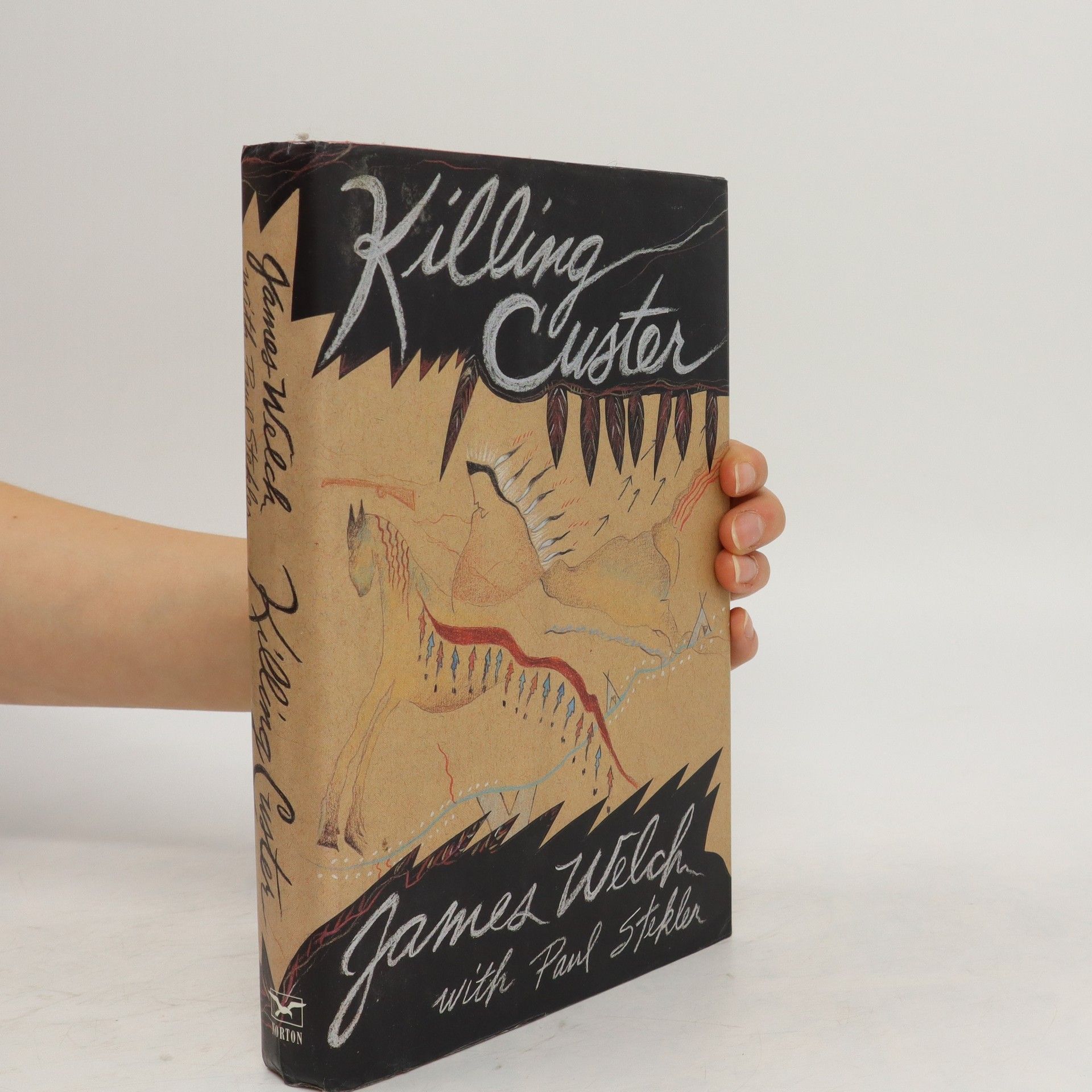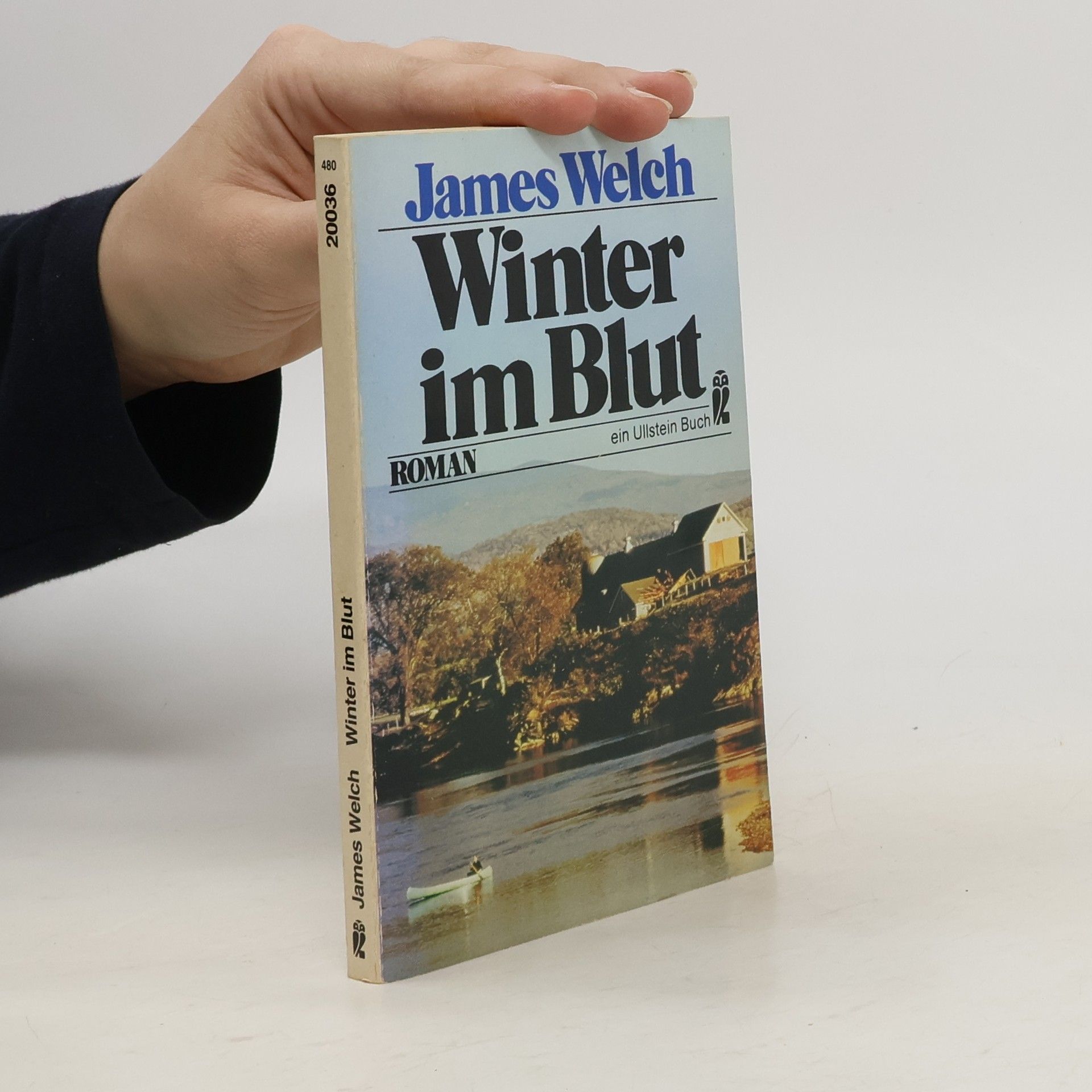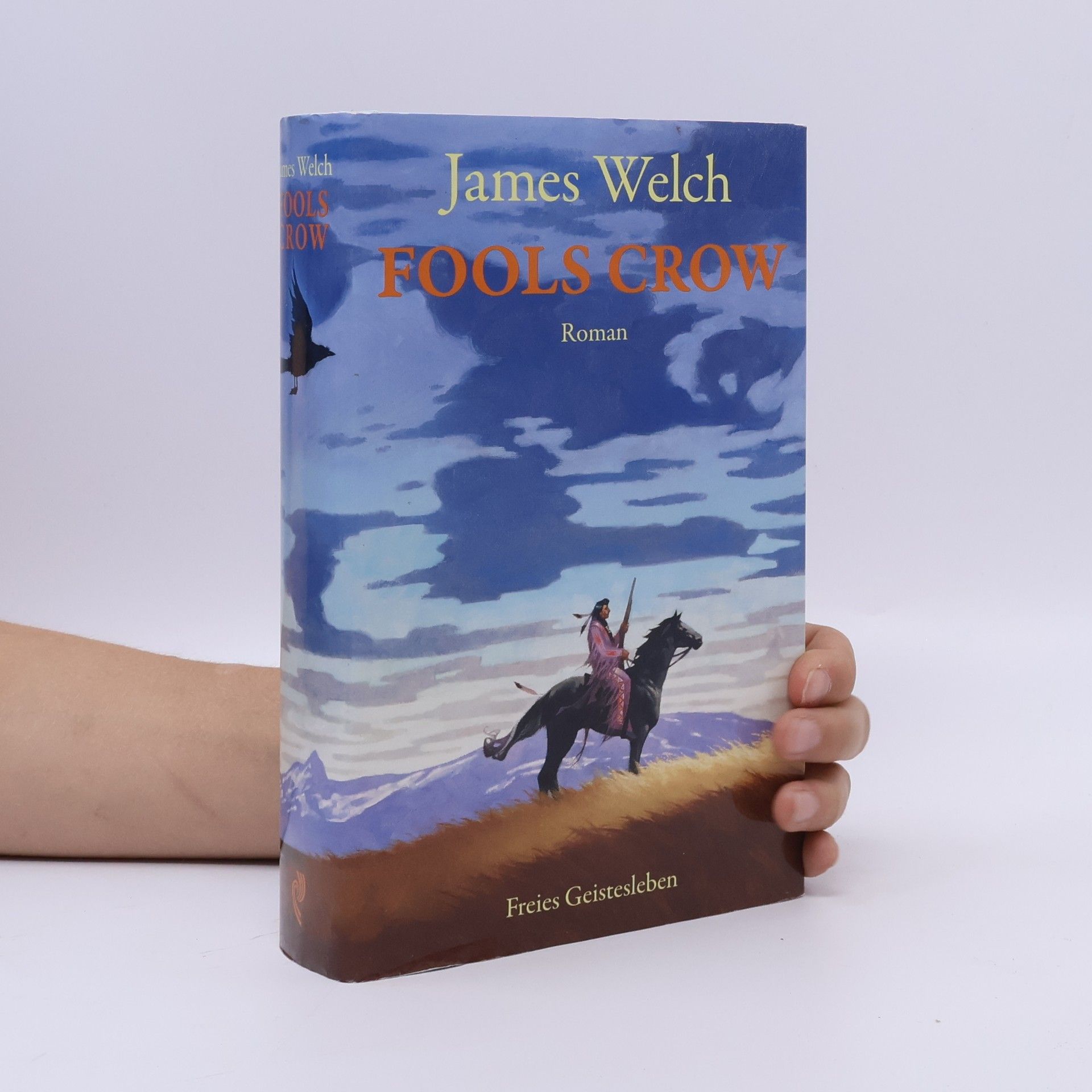Fools Crow
- 500 Seiten
- 18 Lesestunden
Ein Roman aus der Sichtweise und dem Denken der Indianer erzählt
James Welch, ein Autor vom Volk der Blackfeet, gilt als Schlüsselfigur der Native American Renaissance. Seine Romane tauchen tief in die Erfahrungen der amerikanischen Ureinwohner des 19. und 20. Jahrhunderts ein und bieten tiefe Einblicke in ihre Geschichte und Kultur. Welchs Schreiben zeichnet sich durch packendes Storytelling und seine Fähigkeit aus, oft ungehörten Erzählungen eine Stimme zu geben. Sein literarischer Beitrag liegt in der kraftvollen Beschwörung der Vergangenheit und des unbeugsamen Geistes ihres Volkes.







Ein Roman aus der Sichtweise und dem Denken der Indianer erzählt
Verlorener hätte sich Robinson Crusoe nicht fühlen können: Charging Elk, ein Sioux-Indianer, strandet Ende des 19. Jahrhunderts in Frankreich. Zwei Jahrzehnte wird es dauern bis er es endlich geschafft hat, sich heimisch zu fühlen. James Welchs' neues Werk verdient schon jetzt einen Platz unter den Klassikern der amerikanischen Romanliteratur.Frankreich im Jahr 1889: Der junge Indianer Charging Elk tritt in einer Wildwest-Show auf, die in Europa gerade für Furore sorgt. In Marseille verletzt er sich und wird von seinen Stammesgenossen in einem Krankenhaus zurückgelassen. Von einem Tag auf den anderen muß er sich in der fremden Welt zurechtfinden, in einer Gesellschaft, die ihm nicht nur Wohlwollen sondern auch Misstrauen entgegenbringt. Als er sich in eine junge Französin verliebt, wird er urplötzlich in einen Mordfall verstrickt ...
Treats the battle with Custer from the Indians' point of view, showing how their "victory" was merely a last hurrah for a landless people stripped of their rights
A contemporary classic from a major writer of the Native American renaissance — "Brilliant, brutal and, in my opinion, Welch's best work." —Tommy Orange, The Washington Post One of The Atlantic’s Great American Novels of the Past 100 Years During his life, James Welch came to be regarded as a master of American prose, and his first novel, Winter in the Blood, is one of his most enduring works. The narrator of this beautiful, often disquieting novel is a young Native American man living on the Fort Belknap Reservation in Montana. Sensitive and self-destructive, he searches for something that will bind him to the lands of his ancestors but is haunted by personal tragedy, the dissolution of his once proud heritage, and Montana's vast emptiness. Winter in the Blood is an evocative and unforgettable work of literature that will continue to move and inspire anyone who encounters it. For more than seventy years, Penguin has been the leading publisher of classic literature in the English-speaking world. With more than 1,700 titles, Penguin Classics represents a global bookshelf of the best works throughout history and across genres and disciplines. Readers trust the series to provide authoritative texts enhanced by introductions and notes by distinguished scholars and contemporary authors, as well as up-to-date translations by award-winning translators.
This collection of true stories chronicles the joys and challenges of raising Highland cattle in the beautiful, but sometimes harsh climate of Northern Vermont. Some of the stories are heartwarming. Others are heart-rending. All of them will broaden the reader's understanding and appreciation of cattle and the realities of breeding, managing, and caring for them. Like the stories, the photos in this book span nearly 40 years. All of the livestock pictured are from the authors' farm, photographed by three generations of their family.
From the award-winning author of the Native American classic Fools Crow , a richly crafted novel of cultural crossing that is a triumph of storytelling and the historical imagination. Charging Elk, an Oglala Sioux, joins Buffalo Bill's Wild West Show and journeys from the Black Hills of South Dakota to the back streets of nineteenth-century Marseille. Left behind in a Marseille hospital after a serious injury while the show travels on, he is forced to remake his life alone in a strange land. He struggles to adapt as well as he can, while holding on to the memories and traditions of life on the Plains and eventually falling in love. But none of the worlds the Indian has known can prepare him for the betrayal that follows. This is a story of the American Indian that we have seldom seen: a stranger in a strange land, often an invisible man, loving, violent, trusting, wary, protective, and defenseless against a society that excludes him but judges him by its rules. At once epic and intimate, The Heartsong of Charging Elk echoes across time, geography, and cultures.
Jim Loney je míšenec bělošského a indiánského původu. Odcizený oběma těmto společenstvím, vede v malém městečku v Montaně samotářský a bezútěšný život, naplněný nicneděláním a alkoholem. V dětství jej opustila matka i otec, a tak mu zůstala jen sestra Kate, která ale nechápe jeho svět. A také přítelkyně Rhea, která touží dát Loneyho životu nový cíl. Jeho existenci však může dát smysl jediné – přestat utíkat před minulostí a pokusit se nalézt své skutečné kořeny. A to i za cenu ztráty vlastního života… Rozsahem nevelká Welchova próza rozvíjí dojemný příběh o lásce bez naděje a životní cestě za pravdou vedoucí k sebezničení.
Může osamocený indián z divokých Černých hor přežít ve Francii konce devatenáctého století? Poslední román indiánského autora Jamese Welche Útočící jelen (2000) zachycuje osudy mladého indiána z kmene Lakotů, který se slavným představením z amerického Západu, Buffalo Billovou Wild West Show, zavítá do francouzské Marseille. Když se však během vystoupení těžce zraní a show pokračuje v cestě bez něj, započne se nová etapa jeho života a jemu nezbývá než se naučit žít v zemi, jejímuž jazyku nerozumí a jejíž kultura je mu zcela cizí. A její neznalost má mít tragické následky… Útočící jelen je dramatickým vyprávěním o střetu dvou odlišných kultur, zároveň je však mnohem univerzálnějším příběhem o prosté lidské touze po štěstí. – Vychází za laskavé podpory Ministerstva kultury ČR.